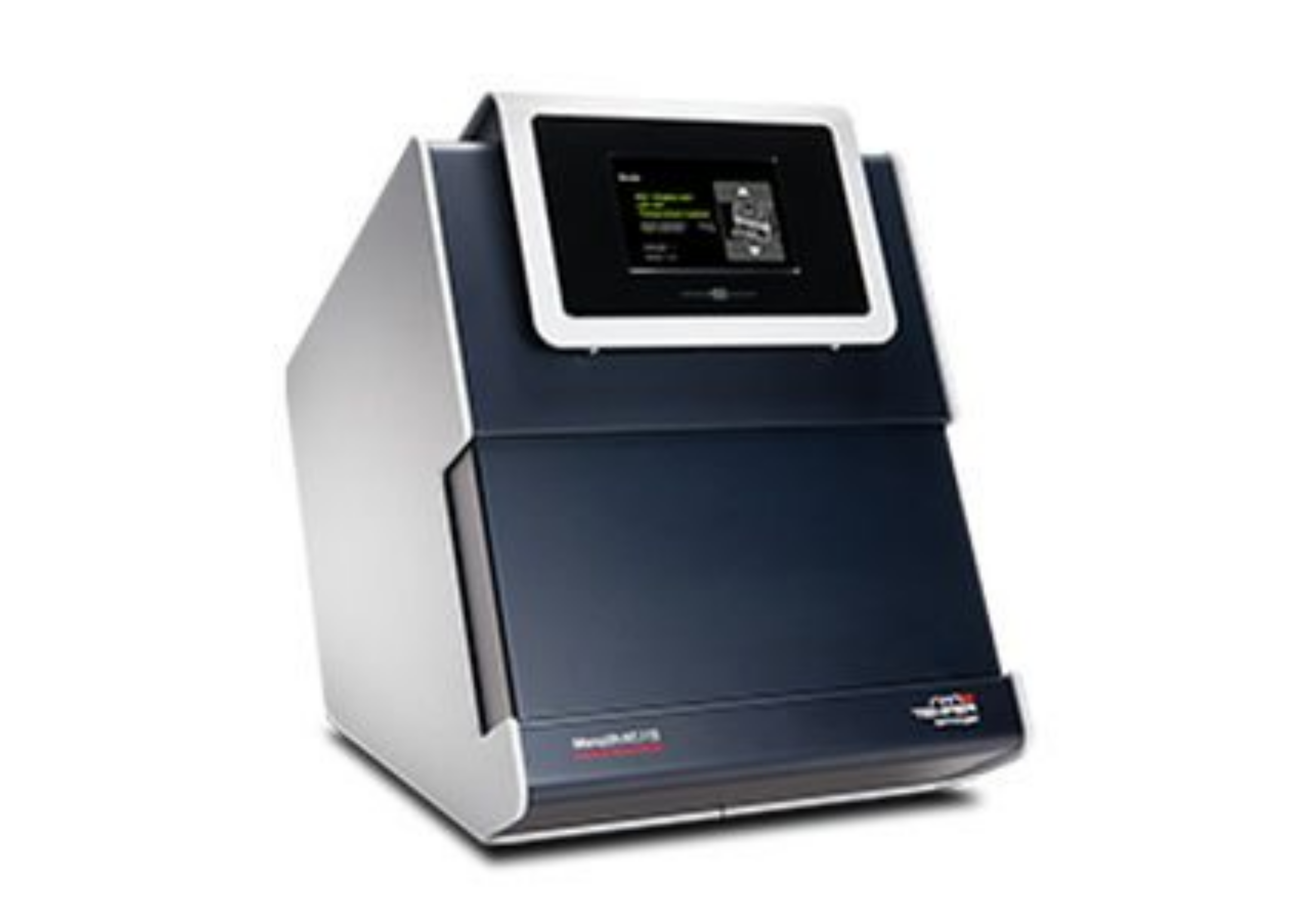Microscale Thermophoresis (MST)
Application: Biomolecular interaction
Instrument: Monolith NT.115 (NanoTemper Technologies)
Location: VBC6, room E34

MicroScale Thermophoresis (MST) is an immobilization-free technology for measuring biomolecular interactions. The MST instrument detects the motion of fluorescent molecules along a microscopic temperature gradient, which reflects changes in the molecular hydration shell, charge, or size. Since one or all these parameters will change with virtually every binding event, a wide range of biomolecules can be measured, from ions and small molecule fragments to large macromolecular complexes, in small volumes (few μL), in a wide range of standard buffers and complex mixtures such as liposomes, detergent, serum, and cell lysates.
In a MST experiment, a local temperature difference (ΔT), induced by an infrared laser, leads to a local change in molecule concentration (depletion or enrichment), quantified by the Soret coefficient that otherwise determines the steady state concentration ratio. The directed movement of molecules along a temperature gradient is termed "thermophoresis". Changes in the thermophoresis of a fixed concentration of a fluorescent molecule (the target) in a constant buffer reflect changes in the size, charge, or solvation entropy of the fluorescent molecules due to binding of the non-fluorescent partner (the ligand). Measuring this behaviour at different concentrations of ligand allows binding quantification and affinity determination.
Measurements can be performed by the users themselves after having received a compulsory training.
Measurements can also be performed by ProTech staff upon request.


